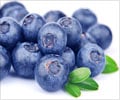Acai Berry for Anti-Aging
Free radicals and inflammation are the two main causes of aging and degenerative diseases. The proponents of acai berry believe that anti-oxidants in acai berry help prevent aging by eradicating free radicals. It would be helpful to understand what free radicals and anti-oxidants are, before discussing the suitability of acai berry for anti-aging purposes.
A free radical is defined as ‘an atom or molecule which has at least one electron, which is not paired with another electron’. It is generally highly reactive.
A free radical in the body is usually an oxygen molecule that has ‘lost’ an electron and oxygen plays a pivotal role in the respiratory process of cell function. During this metabolic process, intermediate products such as superoxides (O2 -), peroxides (O2=), and hydroxyl ions (OH-) are formed. These are also known as reactive oxygen species (ROS).
Since ROS are formed naturally in the body because of metabolic processes, the body has natural defense mechanisms in the form of anti-oxidants that prevent ROS from forming or detoxify the ROS already produced. However, it is important to note that metabolic process is not the only way of ROS production. There are other factors that can enhance production of ROS. Those are:
- Acute or chronic alcoholism;
- Environmental pollution and toxins;
- Emotional and physical stress;
- Aerobic and cardiovascular exercises;
- Consumption of polyunsaturated fats;
- Smoking; and
- Electromagnetic radiation.
Under such conditions, the body is unable to keep up with the production of anti-oxidants and the balance between ROS production and ROS removal, and repair of the damaged cells by the anti-oxidants is disturbed. This imbalance results in a state called
According to the free radical theory of aging proposed by the bio-gerontologist Denham Harman in the year 1956, accumulation of oxidative stress was responsible for aging and anti-oxidants stop or slow the process of aging by preventing free radical formation because of oxidative stress.
However, half a century later, a UK study published in the journal Genes and Development found that oxidative damage is not a universal, major driver of the aging process and that chemical reactions involving sugars also play an important role in the aging process. According to the lead researcher, Dr David Gems of the Institute of Healthy Ageing at University College, London, There is no clear evidence that dietary antioxidants can slow or prevent aging. There is even less evidence to support the claims of most anti-aging products’. This research has been corroborated by other studies as well.
In view of the above, it seems that relying on acai berry products to slow the aging process may not be a wise decision. Aging is a natural process, and premature aging is the result of bad lifestyle habits and environmental pollution. Opting for lifestyle changes including reduction in stress, exercise and good dietary habits may prove to be more fruitful as far as dealing with premature aging is concerned.










